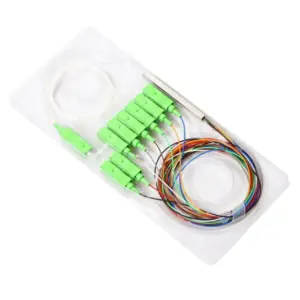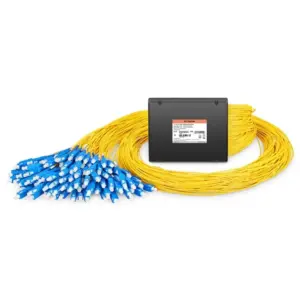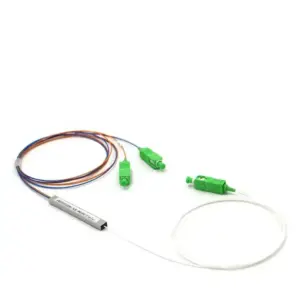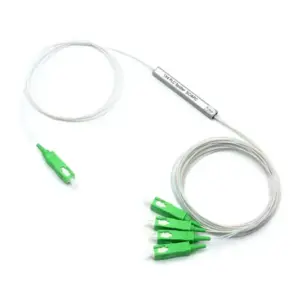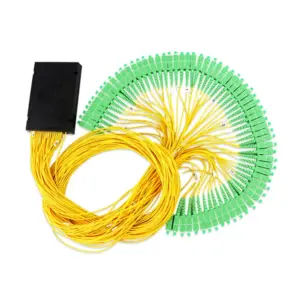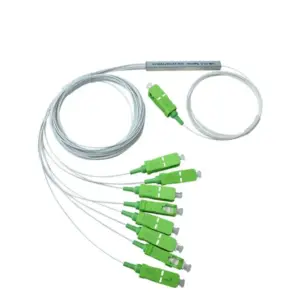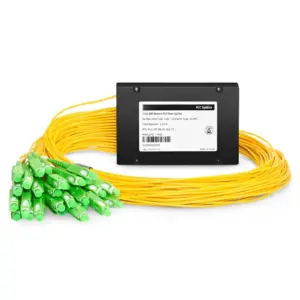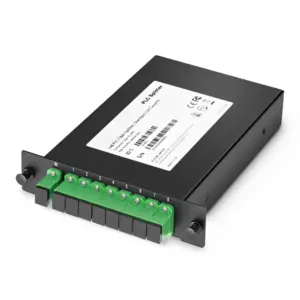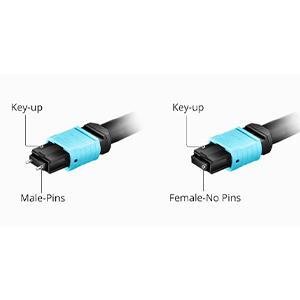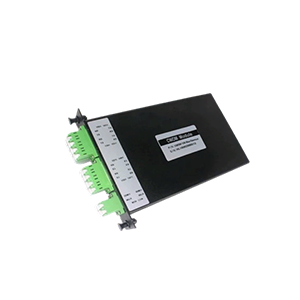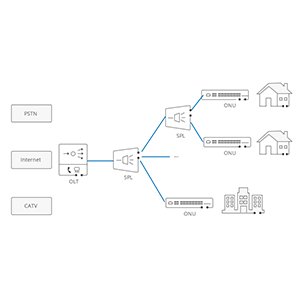In the realm of network optimization, PLC fiber splitters emerge as indispensable tools, streamlining data transmission and enhancing connectivity. This comprehensive guide delves into the intricacies of PLC fiber splitters, offering valuable insights, practical tips, and expert advice to empower your network infrastructure.
Understanding PLC Fiber Splitters
PLC fiber splitters revolutionize network architecture by facilitating efficient signal distribution across multiple endpoints. As compact, cost-effective devices, PLC splitters play a pivotal role in diverse industries, from telecommunications to data centers.
Unraveling the Mechanism
PLC fiber splitters operate on the principle of optical signal splitting, dividing input signals into multiple outputs without compromising signal integrity. Through advanced technology, these splitters ensure seamless data transmission across intricate networks.
Maximizing Signal Integrity
PLC splitters boast minimal insertion loss and low polarization dependence, preserving signal quality across extensive fiber optic networks. This ensures uninterrupted data flow and mitigates the risk of transmission errors, fostering reliable communication channels.
Applications Across Industries
From telecommunications networks to CATV systems, PLC fiber splitters find widespread application in modern infrastructure. Their versatility enables seamless integration into various environments, catering to diverse connectivity requirements.
Telecom Networks
In telecommunications, PLC splitters facilitate efficient distribution of voice, data, and video signals, optimizing network performance and enhancing user experience.
Data Centers
Within data centers, PLC splitters enable streamlined data management, supporting high-speed connectivity and minimizing latency for mission-critical applications.
Advantages of PLC Fiber Splitters
Investing in PLC fiber splitters yields a multitude of benefits, ranging from enhanced scalability to improved network resilience. Understanding these advantages is crucial for maximizing the efficiency of your network infrastructure.
Scalability and Flexibility
PLC splitters offer scalable solutions, accommodating evolving network demands with ease. Whether expanding your infrastructure or adapting to technological advancements, PLC splitters provide the flexibility to scale your network seamlessly.
Cost-Effectiveness
Compared to traditional splitting methods, PLC fiber splitters offer a cost-effective alternative, minimizing upfront investment and long-term maintenance costs. Their efficient design ensures optimal resource utilization, translating to significant savings for network operators.
Space Efficiency
In space-constrained environments, such as urban installations or compact data centers, PLC splitters excel due to their compact footprint and modular design. This space efficiency maximizes rack utilization and minimizes footprint, optimizing resource allocation.
PLC Fiber Splitter Selection Guide
Choosing the right PLC fiber splitter is paramount to achieving optimal network performance and reliability. Consider the following factors when evaluating PLC splitter options for your infrastructure:
Split Ratio
Determine the appropriate split ratio based on your network requirements and anticipated traffic volume. Whether deploying a 1×2, 1×4, or higher split ratio, ensure alignment with your network’s capacity and scalability objectives.
Environmental Considerations
Evaluate environmental factors such as temperature fluctuations, humidity levels, and exposure to external elements when selecting PLC splitters. Opt for ruggedized, weather-resistant models for outdoor installations, ensuring durability and long-term reliability.
Connector Type
Choose the appropriate connector type to facilitate seamless integration with existing network infrastructure. Whether opting for SC, LC, or other connector variants, compatibility with your network components is essential for optimal performance.
Conclusion
In conclusion, PLC fiber splitters represent a cornerstone of modern network infrastructure, offering unparalleled efficiency, reliability, and scalability. By leveraging the insights and recommendations outlined in this guide, you can optimize your network performance and elevate connectivity to new heights.
PLC Fiber Splitter FAQs
PLC fiber splitters offer superior performance and reliability compared to traditional FBT splitters. With lower insertion loss and enhanced signal integrity, PLC splitters are ideal for demanding network environments.
Several factors, including split ratio, environmental conditions, and connector compatibility, impact PLC splitter selection. Conduct a comprehensive assessment of your network requirements to identify the most suitable solution.
Yes, many PLC splitters feature ruggedized designs suitable for outdoor installations. These splitters withstand harsh environmental conditions, ensuring reliable performance in diverse settings.
PLC splitters optimize network efficiency by facilitating efficient signal distribution, minimizing latency, and enhancing data transmission across complex networks.
Yes, PLC splitters are compatible with a wide range of network components, including fiber optic cables, connectors, and distribution panels. Their versatile design simplifies integration into existing infrastructure.
PLC splitters typically require minimal maintenance due to their robust construction and durable components. Routine inspections and cleaning may be recommended to ensure optimal performance and longevity.
-
128-channel optical fiber PLC splitter
-
16-channel optical fiber PLC splitter
-
2-way optical fiber PLC splitter
-
32-channel optical fiber PLC splitter
-
4-way optical fiber PLC splitter
-
64-channel optical fiber PLC splitter
-
8-channel optical fiber PLC splitter
-
ABS module PLC fiber optic splitter
-
Box PLC optical fiber splitter

